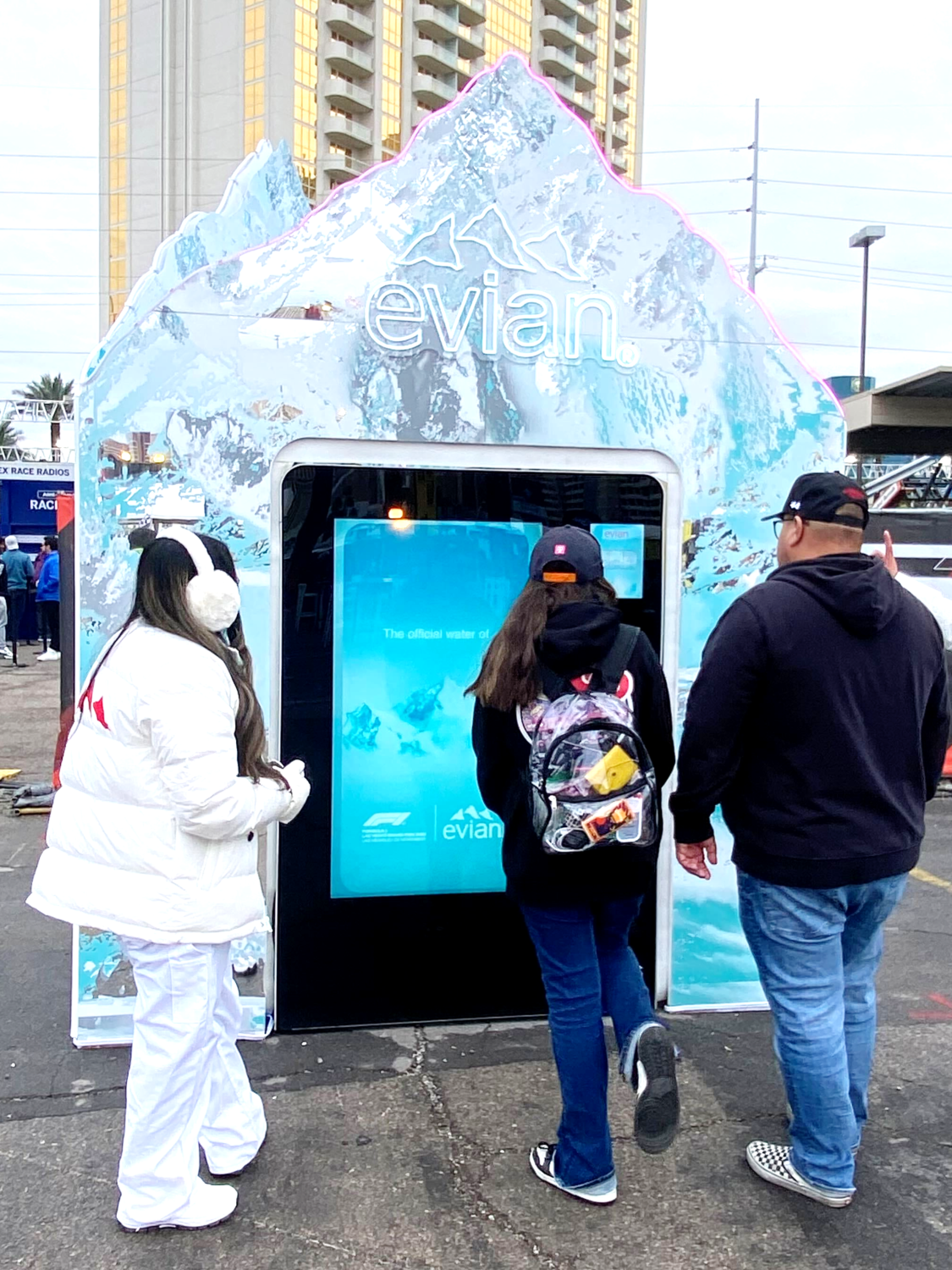Las Vegas: A Temporary Circuit with a Permanent Impact
Image Credit: Las Vegas Circuit (2025)
Las Vegas stands alongside a select group of international cities, including Monaco, Singapore, Miami, Baku, and Jeddah, that each year transform their public highways into temporary Formula 1 race circuits. These unique venues face complex challenges, including navigating intricate urban infrastructure systems, time-sensitive build-and-breakdown cycles, and the sustainability pressures of city environments.
The Formula 1 Las Vegas Grand Prix has responded to these challenges with an integrated strategy focusing on water stewardship, waste reduction, energy responsibility, and community engagement.
Testament to Las Vegas’ high-impact sustainability strategy, the Las Vegas Grand Prix achieved a gold medal in the latest Sustainable Circuits Index (SCI™). It ranked 7th among all temporary circuits and 3rd among Formula 1 street circuits, a significant achievement for an event that held its inaugural race in 2023. The SCI™, developed by Enovation Consulting in partnership with UCL’s Professor Paolo Taticchi, benchmarks sustainability performance across 117 motorsport circuits globally.
Water Stewardship
Las Vegas is an extremely water-stressed city. Located in the Mojave Desert and heavily reliant on dwindling water reserves in the Colorado River Basin, water is a key environmental concern for the Las Vegas Grand Prix and the city’s residents. To enhance water conservation during race weekend, key hydro-innovations at the circuit include:
Atmospheric Water Generator in partnership with the Southern Nevada Water Authority and MGM Resorts, which captures moisture from cooling towers and converts it into clean water, producing over 420,000 gallons to date and helping target net-zero water use at Grand Prix Plaza.
A first-of-its-kind onsite water reclamation unit, in partnership with MTD, recycles blackwater from the main temporary hospitality kitchen. Sustainably powered by hybrid generators, the system is projected to treat up to 50,000 gallons per day, supporting large-scale reuse throughout the circuit.
Recycling water used for track washing, ensuring efficient use across operations.
15 fan hydration refill stations to reduce single-use plastic bottles.
In partnership with the Southern Nevada Water Authority, a tree will be donated for every overtake during the race. Based on last year's 113 overtakes, projected to result in close to 220 new trees planted.
MTD on-site Water reclamation unit - 50,000 gallons of water per day
Image Credit: Las Vegas Circuit (2025)
Advancing the Las Vegas Circuit’s Circularity
LVGP is also strengthening its circular economy practices. At the 2024 race, a total of 176,000 pounds of unused food were donated to Three Square and other local food banks, while an additional 76,000 pounds of food scraps were collected and recycled. Clothing, furniture, plants, and other supplies were also redistributed to local charities, including Veterans Village, the Shine a Light Foundation, and Opportunity Village.
Reverse Vending Machines have been installed at the fan village to incentivise plastic recycling thanks to the purpose-driven partnership between Evian and Las Vegas Grand Prix.
Reverse Vending Machine at the Fan Village
Building Efficiencies
Grand Prix Plaza, the permanent home of the Las Vegas Grand Prix, achieved LEED Silver certification in 2025, supported by 100% LED lighting, fully low-flow water-efficient fixtures, a cigarette-waste-to-energy programme, and more than 19 waste-diversion streams.
Community Engagement Beyond Race Weekend
What distinguishes the Las Vegas Grand Prix, particularly in comparison to other temporary circuits, is its strong focus on social sustainability. Through the Las Vegas Grand Prix Foundation and its broader outreach, the event supports local residents year-round.
Recent social impact initiatives include:
Back-to-school fairs providing children in foster care with school supplies, shoes, and backpacks, as well as offering health screenings, sports gear, and mobile diaper banks.
Community grants, where locals nominate charities to receive five $20,000 awards.
Ticket giveaways celebrating “extraordinary locals.”
F1 Drive Karting Camp, benefiting Boys & Girls Clubs across Southern Nevada, offering STEM learning, safety education, and racing experiences for 240 children. The top three young drivers earn invitations to the following year’s Grand Prix.
A Temporary Circuit with a Permanent Impact
Las Vegas Grand Prix’s dedication to reducing its environmental footprint while expanding its social impact ensures the event’s influence extends far beyond race weekend. Its strong focus on community engagement sets it apart from other major circuits, making it a standout example of how world-class sporting venues – even those operating for just one week a year – can drive meaningful, lasting change.



